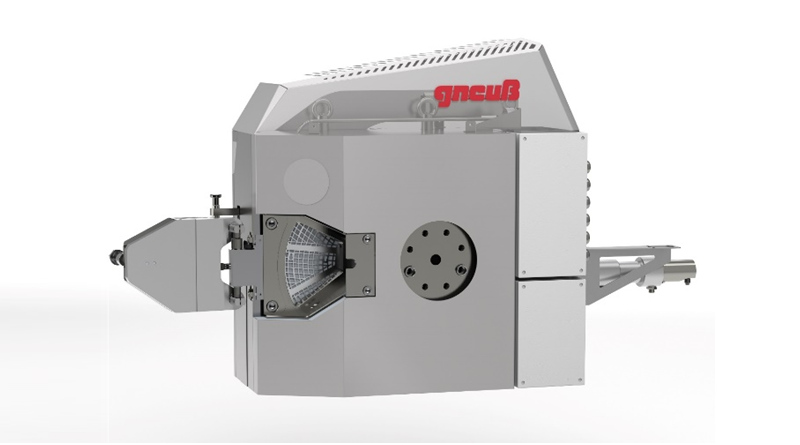PET sheet lines: Fit for recycled material thanks to retrofitted line components
“The demand for PET packaging sheet, which contains a high proportion of recycled material or is even made of 100% of it, has recently increased enormously due to public discussion and legal requirements.” states Gneuss and offers an economic approach.
In order to be able to meet these requirements, many processors are confronted with high investment costs for equipment that can process recycled materials. After all, the quality of the end product must be good. A possibility to combine low investment costs with an extended processing window for recycled material is offered by Gneuss Kunststofftechnik GmbH from Bad Oeynhausen, Germany with a special retrofit service. One of the companies using this service is Cotnyl S.A. from San Martín, thus being the first company in Argentina to obtain local approval to produce packaging made of 100% rPET.
On the one hand, the demand for plastic packaging is constantly increasing worldwide due to changing consumption and consumption habits, especially in the food and beverage sector. On the other hand, plastic packaging in particular has fallen into disrepute and has received new, often negative attention from the public. The call for waste reduction and reasonable recycling of plastic packaging is becoming ever louder. The European Union has drawn up legal directives which stipulate that by December 31, 2025 50% of plastic packaging placed on the market in an EU member state must be recycled. By the end of 2030 it should be 55% and from 2040 onwards all plastic packaging should be 100% reused or recycled so that a closed cycle is achieved.
The market is already responding: according to a recent report by the British consultancy firm Eunomia, consumption of rPET in the EU in 2018 was around 1.4 million tonnes, accounting for 26% of the total demand for PET of 5.3 million tonnes. By 2030, experts expect an increase in demand for rPET of up to 55%. Approximately 20% of the existing rPET is used for PET trays throughout Europe, with the average proportion of recycled material already at 50% – and the trend is rising.
This increased use of recycled materials poses problems for many packaging manufacturers. A recycling rate of up to 100% and the required recyclable design do not always meet the requirements for packaging, especially for food packaging. Food authorities and consumers expect the highest quality in terms of colour, purity, odour and mechanical properties. The desired properties often cannot be achieved with existing equipment designed for processing virgin materials. Investments in completely new lines, with which the processing of recycled materials is successful, are not always possible for economic or space reasons. An alternative is the Gneuss retrofit.
Filtration system indispensable for high contamination levels
Gneuss retrofitting is a good alternative for processing recycled materials. For example, Integrity from Chile has been using rotary filtration systems for several years now to produce PET thermoformed trays with 70% recycled content. This is possible thanks the patented filter disc technology, with constant pressure and fully automatically working. The high and fluctuating levels of contamination of the input material are a major problem in recycling processing. Especially due to the increasing demand for packaging with a high recycled content, the high-quality recycled material, which mostly come from sorted bottle fractions, have become scarce and processors have to fall back on inferior recycled materials with higher degrees of contamination. This has enormous effects on the filtration process. Screens get dirty faster and as screen contamination increases, the pressure upstream of the filter increases, which in turn can lead to temperature and viscosity fluctuations, and finally the available area for the melt to pass through is reduced.
The complete article can be read in PETplanet Insider 6 / 2020.

